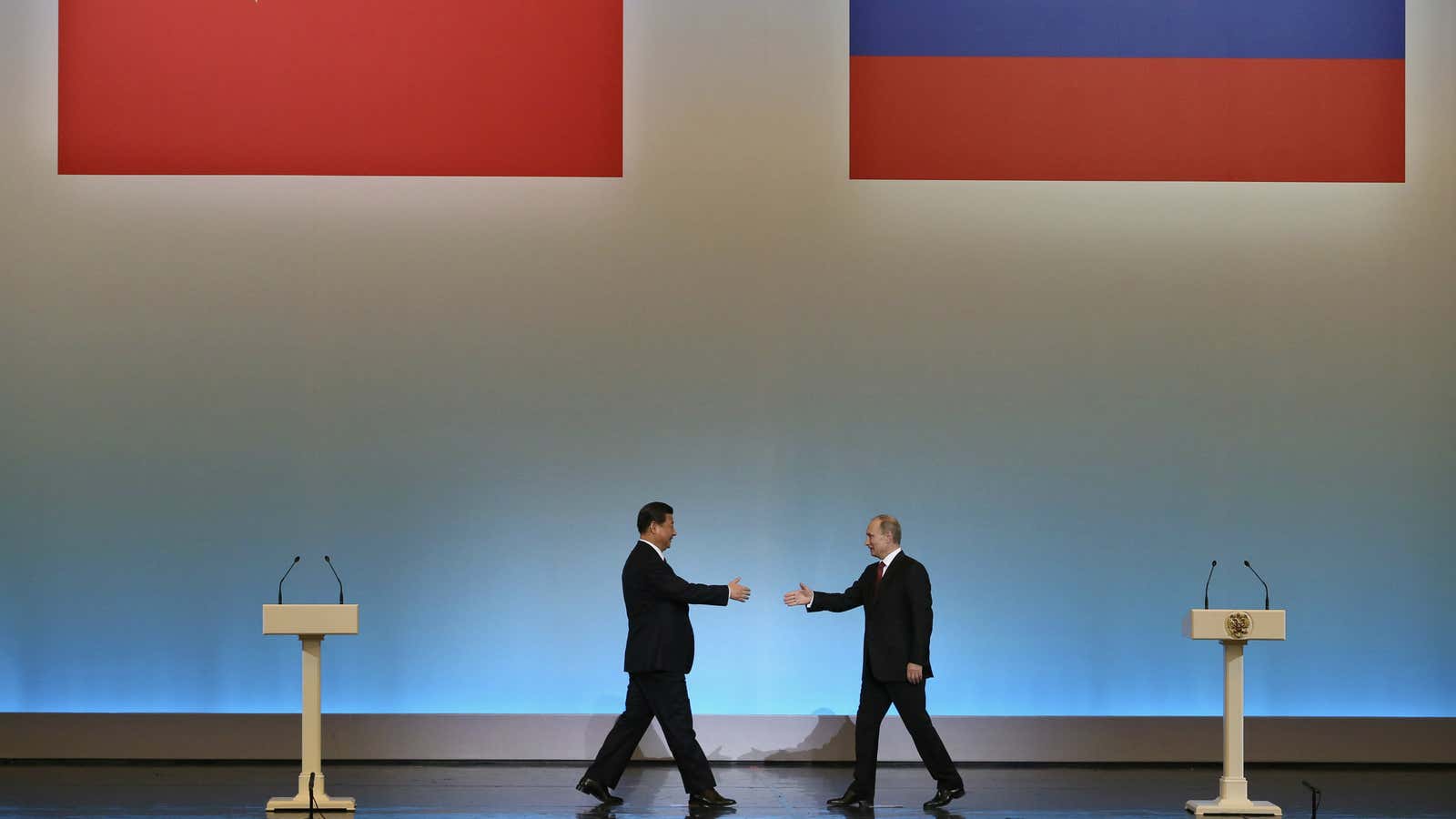Russian president Vladimir Putin, undermined by US shale gas in his main export market of Europe, has long hoped to find a friendlier customer in China. But it turns out that cheap US natural gas is tormenting him in Asia, too.
For years, a Sino-Russian deal on natural gas has been held up by a fundamental disagreement on price, and neither side has been willing to budge. Meanwhile, Russia has suffered as European customers, emboldened by the gas glut triggered by US shale (paywall), have demanded lower prices from Gazprom.
Now, Putin appears to have blinked in his negotiations with China, as the Ukraine crisis has given Europe even more reasons to diversify away from Russia. In a report to clients, political risk firm Eurasia Group says it expects a deal—if it closes—to price out at current European rates of $10 to $11 per 1,000 cubic feet of gas. Given the cost of pipeline construction, Gazprom requires at least $12 per 1,000 cubic feet to break even. The gap will likely be closed through China’s usual method of a gargantuan up-front payment.
Despite the disappointing price Putin will reportedly receive, he intends to proceed with a long-sought, 30-year gas purchase agreement—sending 38 billion cubic meters a year to China starting in 2018—in a May 20-21 visit to Shanghai.
Yet the deal is not yet signed and the Eurasia Group says there is a 20% chance that it won’t be—at least not next week. Seizing on its advantage, Beijing is driving an even harder bargain and extending negotiations, according to Reuters. The longer that talks go on, and the closer the US gets to exporting its first liquefied natural gas next year, the better price China might get.
Russia deputy energy minister Anatoly Yanovsk told state-controlled Russia Today that the deal is “98% ready.”
And Putin’s headaches from US shale don’t stop there—it has also pushed out all but a trickle of high-quality Nigerian light crude from the US market, and that oil will instead flow to Asian customers and exert downward pressure on prices for the rest of the year, according to JP Morgan analysts. That will, in turn, hurt the Russian budget, which relies on oil and gas exports for more than half its revenue.
The net effect of these petro-pressures could be seen yesterday as Russian prime minister Dmitry Medvedev changed his recent harsh tone and sounded downright friendly toward Ukraine. According to Moscow, Ukraine owes Russia billions of dollars for past gas shipments, but Medvedev said that if it pays at least “a part” of the bill, that would be enough to start talking about a discount on Russia’s sky-high payment demands.
Russia is “even ready to sacrifice our own interests to some degree,” Medvedev said.
